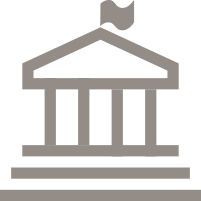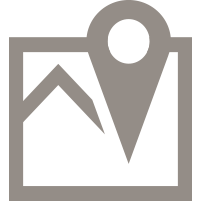Contact Information

- Division
- Liberal Arts
- Dean
- Anne Fleischmann (Interim)
- Associate Deans
- Susan Lucyga, Lynn Medeiros (Interim)

- Division Office
- W 107, Rocklin Campus
Overview
The Fashion program is designed to provide students with the necessary background for careers in the fashion industry or as a basis for advanced study. An AS degree, Certificate of Achievement and two Skills Certificates may be earned.
Faculty
Diana E. Higashi
Assistant Professor, Fashion
B.A., San Francisco State University
Fashion Advisory Committee
- Joseph Green, Regional Manager, bebe
- Diana Higashi, Assistant Professor, Fashion, Sierra College
- Julie Hirota, Fabric Artist
- Michael Sommerfield, Owner, Miosa Couture
Degrees/Certificates
Associate Degree
Certificate of Achievement
Skills Certificates
Fashion Industries
AS Degree and/or Certificate of Achievement
The Fashion Industries program is designed to provide students with the necessary background for a variety of careers in the fashion industry or as a basis for advanced study. For the degree, students must fulfill the following major requirements with grades of “C” or better, complete a minimum of 60 degree-applicable semester units (12 of which must be completed at Sierra College) with a grade point average of at least 2.0 and complete one of the following three general education patterns:
- Sierra College Associate Degree Requirements ;
- California State University General Education Breadth pattern;
- Intersegmental General Education Transfer Curriculum (IGETC) .
A certificate is designed to provide career technical skills; it is not equivalent to an associate degree.
Required Courses
| Code | Title | Units |
|---|---|---|
| FASH 0001 | Introduction to Fashion | 3 |
| FASH 0002 | Fashion Analysis and Selection | 3 |
| FASH 0003 | Textiles | 3 |
| FASH 0004A | Basic Clothing Construction | 3 |
| FASH 0007 | Fashion Promotion | 3 |
| or FASH 0014 | Visual Merchandising | |
| FASH 0008 | Fashion Illustration | 3 |
| FASH 0011 | Buying for the Fashion Industry | 1 |
| FASH 0012 | Fashion History | 3 |
| or FASH 0015 | Clothing and Culture | |
| FASH 0016 | Fashion Portfolio Development | 3 |
| FASH 0028 | Independent Study | 1 |
| or FASH 0095 | Internship in Fashion | |
| BUS 0120 | Introduction to Marketing | 3 |
| or BUS 0123 | Retailing | |
| BUS 0140 | Small Business Management | 3 |
| Total Units | 32 | |
Fashion Design
Skills Certificate
Designed to give students basic support knowledge and abilities required to enter the workforce. Focuses on skills relative to the fields of fashion design, fashion consulting, alterations, wardrobe styling and personal shopping. This is a specialty skills certificate designed to provide career technical skills; it is not equivalent to an associate degree.
Required Courses
| Code | Title | Units |
|---|---|---|
| FASH 0002 | Fashion Analysis and Selection | 3 |
| FASH 0003 | Textiles | 3 |
| FASH 0004A | Basic Clothing Construction | 3 |
| FASH 0004B | Intermediate Clothing Construction | 3 |
| FASH 0008 | Fashion Illustration | 3 |
| Total Units | 15 | |
Fashion Merchandising
Skills Certificate
Designed to give students basic support knowledge and abilities required to enter the workforce. Focuses on skills relative to the fields of fashion retail, fashion merchandising, wardrobe styling and personal shopping. This is a specialty skills certificate designed to provide career technical skills; it is not equivalent to an associate degree.
Required Courses
| Code | Title | Units |
|---|---|---|
| FASH 0001 | Introduction to Fashion | 3 |
| FASH 0002 | Fashion Analysis and Selection | 3 |
| FASH 0007 | Fashion Promotion | 3 |
| FASH 0011 | Buying for the Fashion Industry | 1 |
| FASH 0014 | Visual Merchandising | 3 |
| Select one of the following: | 3 | |
| Introduction to Marketing | ||
| Retailing | ||
| Small Business Management | ||
| Total Units | 16 | |
Courses
Understanding course descriptions
FASH 0001. Introduction to Fashion
Units: 3
Hours: 54 lecture
Exploration of the diversity and complexities of the fashion business. Career opportunities and qualifications are studied. The relationship between the fashion world and the public, including sources of fashion, influences on fashion, and fashion prediction and promotion, are addressed. (CSU)
FASH 0002. Fashion Analysis and Selection
Units: 3
Hours: 54 lecture
Consideration of the psychological, sociological, and physical factors which have an impact on dress. Principles of design as they relate to clothing and appearance. Consumer issues related to the selection and use of clothing. (CSU)
FASH 0003. Textiles
Units: 3
Hours: 54 lecture
Introduction to the study of characteristics and uses of natural and synthetic fibers and fabrics. Emphasizes evaluation and selection of textile products. (CSU, UC)
FASH 0004A. Basic Clothing Construction
Units: 3
Hours: 108 (27 lecture, 81 laboratory)
Techniques of garment construction; use of commercial patterns, pattern alterations, and fitting techniques; comparison of construction techniques and costs between ready-to-wear and custom-made clothing; the social and psychological aspects of clothing selection, with emphasis on basic design principles. (CSU)
FASH 0004B. Intermediate Clothing Construction
Units: 3
Prerequisite: Completion of FASH 4A with grade of "C" or better
Hours: 108 (27 lecture, 81 laboratory)
Intermediate and advanced techniques of garment construction. Designed for individuals with basic knowledge of sewing principles. Development and improvement of skills in working with designer patterns; techniques of handling specialty fabrics, including knit fabrics; use of sergers. (CSU)
FASH 0007. Fashion Promotion
Units: 3
Hours: 54 lecture
Emphasis on the role of promotion in the selling and advertising of fashion goods. All avenues of fashion promotion explored and evaluated including: advertising, publicity, special events, fashion show production, direct marketing and target market research. Promotion skills developed through the planning and promotion of special events. (CSU)
FASH 0008. Fashion Illustration
Units: 3
Hours: 108 (36 lecture, 72 laboratory)
Illustration techniques with emphasis on figure proportions used in the fashion industry. Various media used to communicate fashion and apparel details. SNAP Fashun presented with focus on flat sketch. (CSU)
FASH 0011. Buying for the Fashion Industry
Unit: 1
Hours: 18 lecture
Examines the roles and responsibilities of fashion industry buyers and merchandising managers that must balance the needs of retailers, objectives of vendors, and preferences of consumers. The roles of trend forecasting, inventory analysis and assortment planning discussed as they relate to the fashion industry. Introduction to domestic and international fashion markets and market weeks. Prepares students for fashion industry careers as vendors, buyers, or retailers of fashion goods and services. (not transferable)
FASH 0012. Fashion History
Units: 3
Hours: 54 lecture
Fashion and adornment through the ages to the present. Emphasis on the historical flow and how fashion themes are reinterpreted or influence designs in later periods including the present. Provides a basis for understanding and appreciating fashion as well as how the times and environment affect styling, colors, fabric and details. Field trip may be required. (CSU)
FASH 0014. Visual Merchandising
Units: 3
Hours: 72 (36 lecture, 36 activity)
Introduces contemporary display techniques, equipment, and materials for designing three-dimensional product presentations within the retail environment. Emphasis is placed on fashion items and includes the use of mannequins and dress forms. Students complete a window display on campus. Field trips required. (CSU)
FASH 0015. Clothing and Culture
Units: 3
Hours: 54 lecture
Study of clothing and its relationship to culture, society, and the individual. The psychological and sociological influences of dress, the physical aspects of appearance, and the influences of gender, sexuality, ethnicity, and class on the development of personal identity are explored through the study of style in traditional cultures, popular culture and everyday life. (CSU)
FASH 0016. Fashion Portfolio Development
Units: 3
Prerequisite: Completion of FASH 4A, 7, 8, and 14 with grades of "C" or better
Hours: 72 (36 lecture, 36 activity)
Creation and use of fashion portfolio for college transfer to a four year school and/or job interviews in the fashion industries. Students brand and market themselves highlighting individual skills and strengths. Exploration of different presentation styles includes print and digital material. As a culmination of their studies students present the portfolio in interview format as final project. For advanced students. (not transferable)
FASH 0028. Independent Study
Units: 1-3
Designed for students interested in furthering their knowledge at an independent study level in an area where no specific curriculum offering is currently available. Independent study might include, but is not limited to, research papers, special subject area projects, and research projects. See Independent Study page in catalog. (CSU)
FASH 0095. Internship in Fashion
Units: 0.5-4
Designed for advanced students to work in an area related to their educational or occupational goal. Provides new on-the-job technical training under the direction of a worksite supervisor, allowing students to expand knowledge and skills in the chosen field. Mandatory orientation session and faculty approval to determine eligibility. Students may earn up to a total of 16 units in internship courses (any course numbered 95 and PDEV 94). (CSU-with unit limitation)
Program Student Learning Outcomes (PSLOs)
- Demonstrate theoretical and practical knowledge of fashion design and merchandising.
- Create elements of fashion merchandising and design that reflect creative expression.
- Critique elements and principles of design in Fashion design and merchandising.
- Develop skills in teamwork through group projects.
- Use computer skills to work with fashion industry software.



